Leadership & Governance
Overview
The National Bureau of Economic Research is governed by a Board of Directors consisting of 51 members from leading North American research universities, economics professional organizations, and the business and labor communities. The board chair, vice-chair, and past-chair are Peter Blair Henry, Karen Mills, and John Lipsky, respectively. Board member James Poterba is the president and chief executive officer. Barry Melancon is the treasurer.
The Board of Directors exercises all of the powers of the Corporation and is responsible for establishing its policies and supervising the direction and management of its affairs. The Board approves the appointment of all research associates, reviews the budget and financial management of the organization, and elects board members and officers. It also approves all NBER books for publication. The Board reviews and approves NBER policies on matters such as conflict of interest disclosures, privacy protections, and discrimination prevention. The board holds two meetings each year.
Directors of the Corporation are divided into three classes: (a) Directors at large, (b) Directors by appointment of universities, (c) Directors by appointment of other organizations. The set of universities and other organizations represented on the Board is amended periodically. At large directors are recruited by a committee consisting of the Board Chair, Vice-Chair, Past Chair, Treasurer, and the President. Directors are not compensated and are subject to the NBER Conflict of Interest Disclosure Policy and the NBER Code of Conduct.
Officers

Peter Blair Henry is the Class of 1984 Senior Fellow at Stanford University's Hoover Institution, a senior fellow at Stanford's Freeman Spogli Institute for International Studies, and dean emeritus of New York University's Stern School of Business. Best known for a series of articles that overturned conventional wisdom on debt relief, international capital flows, and the role of institutions in economic growth, Henry was appointed head of the external economic advisory group of Barack Obama's presidential campaign and was chosen to lead the presidential transition team's review of lending agencies. He was appointed to the Presidential Commission on White House Fellows in May 2009. Henry is a member of the boards of Citicorp and Nike, is a nonresident senior fellow of the Brookings Institution, and was previously a director of Kraft Foods Group and General Electric. He received his PhD in economics from MIT, was a Rhodes Scholar at Oxford University, and holds a BA in economics from the University of North Carolina at Chapel Hill, where he was a Morehead Scholar.
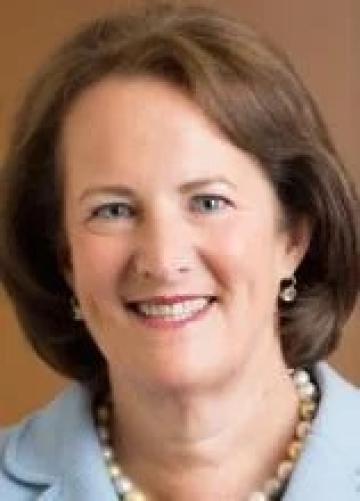
Karen Mills is the President of Tootsie Roll Industries, an American manufacturer of confectionary products. She served in President Barack Obama's Cabinet as Administrator of the US Small Business Administration from 2009 to 2013 and was a member of the National Economic Council. From 2014 to 2025 she was a senior fellow on the entrepreneurship faculty at the Harvard Business School. Mills is a leading authority on US competitiveness, entrepreneurship, and innovation, and the author of Fintech, Small Business & the American Dream as well as many other publications on fintech, innovation, and supply chains. She has a long track record as a venture capitalist and currently serves on the board of directors of Skillsoft, an educational technology. Mills is a member of the Harvard Corporation and a past vice chair of the Harvard Overseers. She earned an undergraduate degree in economics from Harvard and an MBA from Harvard Business School, where she was a Baker Scholar.

Barry Melancon represents the American Institute of Certified Public Accountants (AICPA). From 1995 until 2024, he served as the CEO of both the AICPA and the Association of International CPAs, where he spearheaded a number of important initiatives, including audit quality centers, private company reporting standards, the computerized CPA exam, and consumer financial literacy education programs. He was the Global Chairman of the Board of the International Integrated Reporting Council (IIRC), and a founding board member of the Center for Audit Quality. Melancon has served on the US Department of the Treasury Advisory Committee on the Auditing Profession. A member of the Accounting Hall of Fame and Chairman of the Baker-Tilly International board of directors, he holds both an undergraduate degree in accounting and an MBA from Nicholls State University, which also awarded him its first Honorary Doctorate of Commerce.
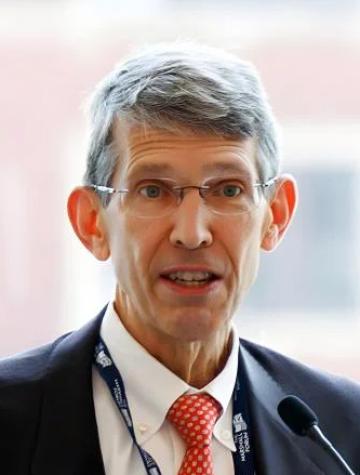
James Poterba is the Mitsui Professor of Economics at MIT. He is a past president of the National Tax Association and the Eastern Economic Association, a past vice president of the American Economic Association, and a former director of the American Finance Association. His research focuses on taxation, household behavior, and retirement security. Poterba is a member of the National Academy of Sciences, a trustee of the College Retirement Equity Fund, and a past trustee of the Alfred P. Sloan Foundation. He studied economics as an undergraduate at Harvard, and received a doctor of philosophy degree in economics from Oxford University, where he was a Marshall Scholar.
Directors at Large
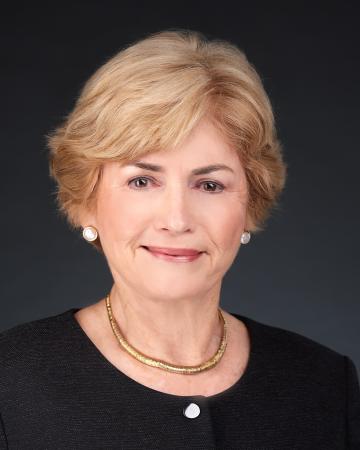
Kathleen Cooper, board chair from 2011 to 2014, is a senior fellow at SMU’s John G. Tower Center for Public Policy and International Relations. She has served in a variety of posts over her career — Under Secretary for Economic Affairs at the US Commerce Department, Chief Economist for the Exxon Mobil Corporation, Executive Vice President of Security Pacific National Bank, Chief Economist of the United Banks of Colorado, and Dean of the College of Business at the University of North Texas. In addition to her current affiliation with NBER, Dr. Cooper was recently appointed as a director of the Tower Center Board. She served as director of Deutsche Bank Trust Company of the Americas and as director for more than a dozen years of the Williams Companies, an energy infrastructure company. Dr. Cooper has held positions as president of the National Association for Business Economics (NABE) and the US Association for Energy Economics, chair of the American Bankers Association’s Economic Advisory Committee, and founding director of Texas Security Bank. She remains an active member of the Council on Foreign Relations in New York and holds a PhD in economics from the University of Colorado.
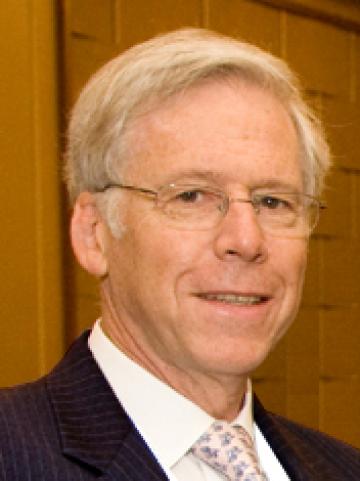
Charles H. Dallara is an Advisory Partner and Chairman of the Board of Partners Group USA, based in New York. He has 44 years of industry experience. Prior to joining Partners Group, he was the Managing Director and Chief Executive Officer of the Institute of International Finance. Previously, he was a Managing Director at JP Morgan & Co. In addition, he held the following positions in the George HW Bush and Ronald Reagan administrations: Assistant Secretary of the Treasury for International Affairs, Assistant Secretary of the Treasury for Policy Development and Senior Advisor for Policy to the Secretary of the Treasury, United States Executive Director of the IMF, and, concurrently, Senior Deputy Assistant Secretary of the Treasury for International Economic Policy and US Alternate Executive Director at the IMF. He holds a Master of Arts, a Master of Arts in Law & Diplomacy and a PhD from the Fletcher School of Law and Diplomacy at Tufts University, Massachusetts, USA, and a bachelor’s degree in economics from the University of South Carolina, USA.
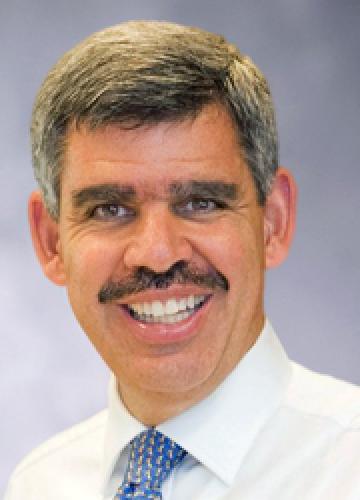
Mohamed A. El-Erian is the President of Queens’ College, Cambridge University (UK), Professor of Practice at the Wharton Business School, and Senior Global Fellow at the Lauder Institute (University of Pennsylvania). He is the Chief Economic Advisor to Allianz, the corporate parent of PIMCO where he served as CEO and co-chief investment officer, and Chair of Gramercy Fund Management. He was the chair of President Obama’s Global Development Council. He is the author of two WSJ/NYT bestsellers, The Only Game in Town and When Markets Collide, a contributing editor at the Financial Times and a Bloomberg Opinion columnist. He earned a BA/MA (Economics) at Cambridge University and a masters and doctorate (Economics) at Oxford University.
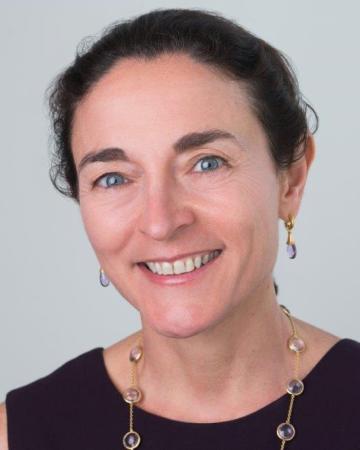
Diana Farrell was the founding President and Chief Executive Officer of the JPMorgan Chase Institute, where she created a legacy of producing and publishing unique data analyses and insights that leverage the bank's own transactions data. Previously, Diana was the Global Head of the McKinsey Center for Government and the McKinsey Global Institute. Additionally, Diana served in the White House as Deputy Director of the National Economic Council and Deputy Assistant to the President on Economic Policy for 2009-2010. Diana holds a MBA from Harvard Business School, and has a BA from Wesleyan University, from where she was awarded a Distinguished Alumna award.
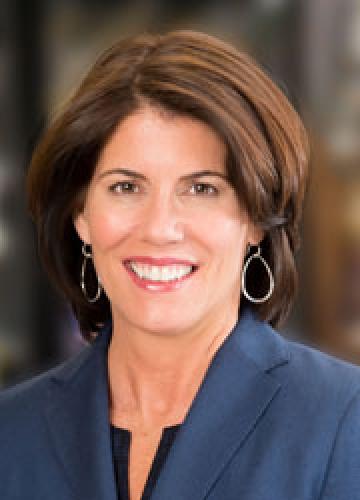
Helena Foulkes is the former CEO of the Hudson’s Bay Company (HBC), a retail conglomerate, which she led through significant transformation and to a successful privatization in March 2020. Prior to joining HBC, she spent 25 years at CVS Health, most recently as President of CVS Pharmacy and as Executive Vice President of CVS Health. She led both the strategic vision and the operations for all aspects of the company’s retail business and was a principal architect of the company’s move to becoming a recognized leader in the healthcare industry, including its exit from the tobacco business. She graduated from Harvard College with an A.B. in Economics, received an MBA from the Harvard Business School, and serves as a director at Home Depot and on the Harvard University Board of Overseers.
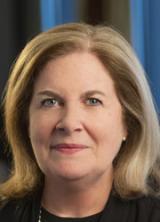
George is the past president and CEO of the Federal Reserve Bank of Kansas City. For nearly 12 years, she led that bank’s staff of more than 2,000 employees, overseeing supervision of financial institutions and provision of payment and financial services to depository institutions. She played a key role in setting national monetary policy as a voting member of the Federal Reserve Open Market Committee, and hosted the Kansas City Fed's annual Jackson Hole Economic Symposium. George received her undergraduate degree in business administration from Missouri Western State University and an MBA from the University of Missouri-Kansas City.
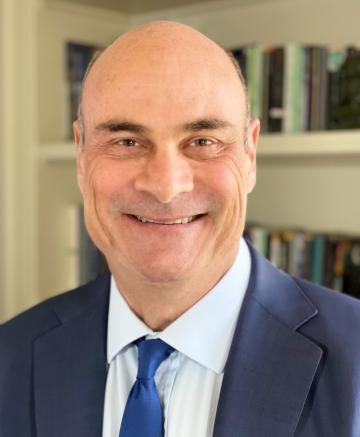
Peter Hancock is the former president and chief executive officer of AIG. His long career in the financial services industry was focused on the measurement and management of risk in various market settings. Prior to joining AIG, he served as the chief financial officer and chief risk officer at JPMorgan, where he led the firm’s fixed income unit and founded its global derivatives business. He was also vice chairman of KeyBank and a co-founder of Integrated Finance, Limited. Hancock received his undergraduate degree at the University of Oxford in politics, philosophy, and economics. He is currently a William Pitt Fellow of Pembroke College at the University of Cambridge.
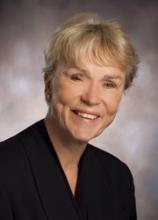
Karen Horn, board chair from 2017 to 2020, is former director of the National Association of Corporate Directors and vice-chairman of the US-Russia Foundation for Economic Development and the Rule of Law. She is a director of Simon Property Group and a partner of Brock Capital Group. Former directorships include Eli Lilly and Company, Norfolk Southern Corporation, T. Rowe Price Mutual Funds, Georgia-Pacific Corporation and the Rockefeller Foundation. She is the former chairman of the board of Case Western Reserve University. Former positions include Head of International Private Banking for Bankers Trust, Chairman and CEO of Bank One Cleveland, and President of the Federal Reserve Bank of Cleveland. She holds a PhD in economics from Johns Hopkins University.

Lisa Jordan is the Director of Education and Membership Development for the United Steelworkers of America. She and her staff create and coordinate the union's education program throughout North America and in the U.K. Dr. Jordan also does a range of applied economic research. She currently serves as an advisor to the AFL-CIO's Commission on Race and is a past Board member of the Labor and Employment Relations Association (LERA). Dr. Jordan graduated from the University of Notre Dame with a PhD in labor economics. She served as a labor educator and assistant professor at the University of Illinois and University of Minnesota before becoming the Director of the School of Business at Brevard College. Her primary areas of interest are labor economics, industrial relations, and race and gender economics.
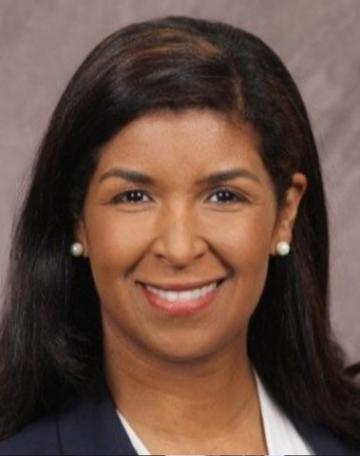
Karin Kimbrough is the chief economist at LinkedIn, a leading online professional network, where she leads a team of economists and data scientists that focuses on the intersection of economics, markets, and policy. She previously served as assistant treasurer at Google, managing director and head of macroeconomic policy at Bank of America, and as a vice president of the Federal Reserve Bank of New York. Kimbrough received her undergraduate degree in economics from Stanford University, a master’s in public policy with a focus on international economics from Harvard University’s Kennedy School of Government, and her doctorate in economics from the University of Oxford. She is a member of the board of directors at Fannie Mae and serves on the Academic Advisory Council of the Federal Reserve Bank of Chicago.
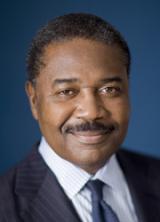
Lewis is a partner and member of the Firm Leadership Team at Apollo Global Management, a leading investment manager specializing in alternative asset classes. Prior to joining Apollo, he was a managing director and chair of investment banking at Lazard. He spent more than two decades in a variety of leadership roles at Morgan Stanley including global mergers and acquisitions, corporate finance, and chair of the firm's diversity task force. Lewis serves on the board of directors of Ariel Alternatives, the Harvard Management Company, which oversees the Harvard University endowment, and several non-profit institutions. He received his undergraduate degree in economics from Harvard University and an MBA from Harvard Business School.
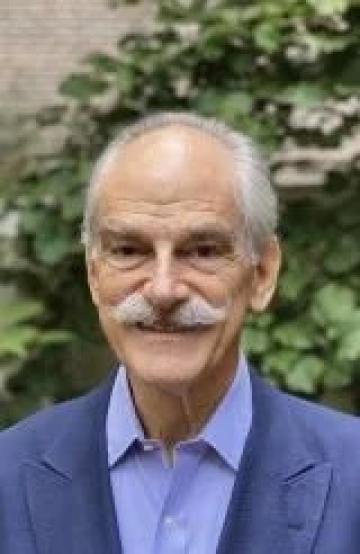
John Lipsky is the Peterson Distinguished Scholar at the Kissinger Center for Global Affairs, and a Senior Fellow of the Foreign Policy Institute, both at Johns Hopkins University's Paul H. Nitze School of Advanced International Studies (SAIS). Previously, he served a five-year term as the International Monetary Fund's First Deputy Managing Director. Prior to his IMF term, Mr. Lipsky was Vice Chairman of the JPMorgan Investment Bank, after serving as JPMorgan's Chief Economist. Currently, Mr. Lipsky is Co-Chair of the Aspen Institute's Program on the World Economy, a Director of the Center for Global Development, and of the American Council on Germany and an Advisory Board member of the Stanford Institute for Economic Policy Research (SIEPR). Mr. Lipsky is a life member of the Council on Foreign Relations, and received a PhD in economics from Stanford University.
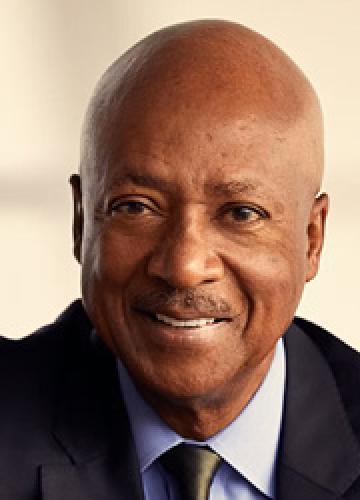
Morse is a cofounder and managing partner of Fairview Capital Partners, a Connecticut-based venture capital and private equity investment management firm. Prior to launching the firm, he held senior positions or served on the advisory boards of several other venture capital firms. He is a board member of Webster Financial Corporation, an NYSE-listed commercial bank; a trustee of Harris Associates Investment Trust (Oakmark Mutual Funds); and chair of the board of trustees of Howard University. Morse received his undergraduate degree in economics from Howard and his PhD in economics from Princeton University.
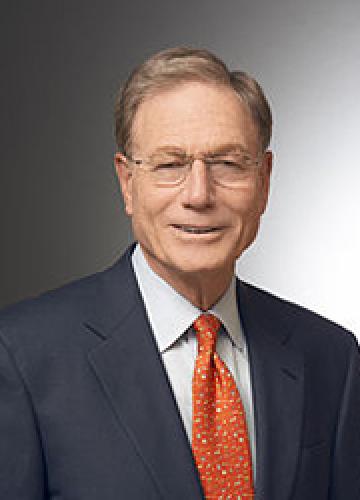
Michael Moskow, board chair from 2002 to 2005, is Vice Chair and Distinguished Fellow on the Global Economy at The Chicago Council on Global Affairs. From 1994 until 2007, he was President and Chief Executive Officer of the Federal Reserve Bank of Chicago. Prior to this post, Mr. Moskow was Professor of Strategy and International Management at the JL Kellogg Graduate School of Management, Northwestern University. He served in the George HW Bush Administration as Deputy US Trade Representative and has previously held positions in business, government, and universities. He received his PhD in Applied Economics from the University of Pennsylvania and serves as an Emeritus Trustee at Lafayette College. He serves on the Boards of Directors of Discover Financial Services, and Commonwealth Edison (ComEd).
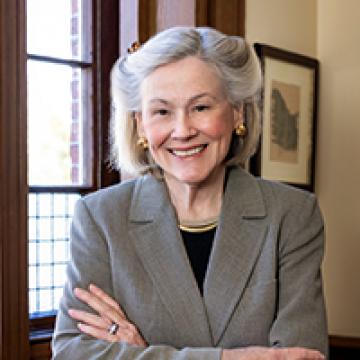
Alicia H. Munnell was formerly the Peter F. Drucker Professor in Management Sciences at Boston College's Carroll School of Management and Director of the Center for Retirement Research at Boston College. Previous positions include Senior Vice President and Director of Research at the Federal Reserve Bank of Boston, Assistant Secretary of the U.S. Treasury for Economic Policy, and a member of the President's Council of Economic Advisers from 1995-97. Her research interests include tax policy, Social Security, public and private pensions, and productivity. Munnell is a member of the American Academy of Arts and Sciences, National Academy of Medicine, and the Pension Research Council at Wharton. She is also a member of the board of The Century Foundation and the Pension Rights Center. She earned her B.A. from Wellesley College, her M.A from Boston University, and her Ph.D. in economics from Harvard University.

Justin Muzinich is the Chief Executive Officer of Muzinich & Co, a New York-headquartered investment firm specializing in public and private corporate credit. From 2018 to 2021, he served as US Deputy Secretary of the Treasury, overseeing domestic and national security policy for Treasury, helping to lead the economic response to COVID‑19, and representing the US at the G7, the G20, and the OECD. He has served as a Distinguished Fellow at the Council on Foreign Relations (CFR) and as a Senior Fellow at the John F. Kennedy School of Government at Harvard University. He is a director of the CFR and New York‑Presbyterian Hospital. Muzinich holds an undergraduate degree in Social Studies from Harvard College, a JD from Yale Law School, and an MBA from the Harvard Business School.
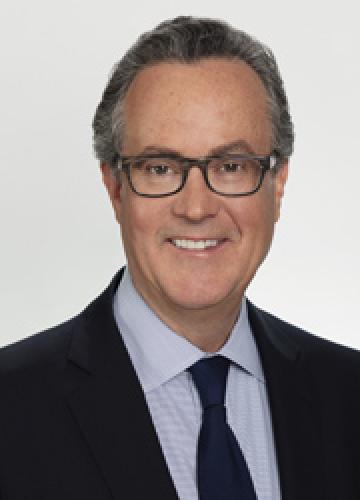
Doug Peterson serves as a senior advsior to S&P Global and is a member of the company's Board of Directors. He was President and Chief Executive Officer from 2013 until November 2024. He joined the Company in 2011 as President of Standard & Poor’s Ratings Services. During his tenure, he repositioned S&P Global to power the global capital and commodity markets of the future with transparent, innovative and independent credit ratings, benchmarks, analytics and data. Previously, Mr. Peterson was the Chief Operating Officer of Citibank. His prior roles, over 26 years with Citigroup, include CEO of Citigroup Japan, Chief Auditor of Citigroup and Country Manager for Costa Rica and Uruguay. A leading voice on sustainability and the energy transition, Mr. Peterson serves on the board of the UN Global Compact as well as a range of other nonprofit business-related, academic and arts organizations. Born and raised in New Mexico, Mr. Peterson received his undergraduate degree from Claremont McKenna College and an MBA from the Wharton School at the University of Pennsylvania.
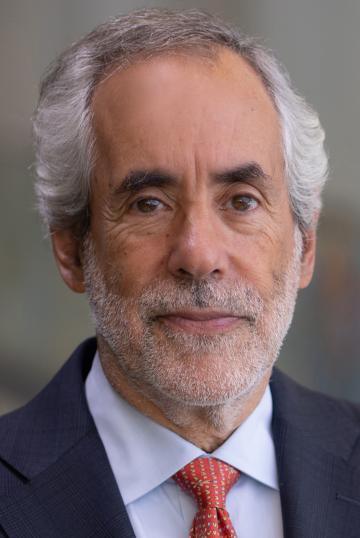
Andrew D. Racine is a system senior vice president and chief medical officer at the Montefiore Health System in The Bronx, New York, and a professor of pediatrics at Albert Einstein College of Medicine. A pediatrician and economist, he has carried out research on the contribution of economic factors such as poverty to the health status of infants, children, and adolescents. He is the President-Elect, and is a former member of the national Committee on Child Health Financing of the American Academy of Pediatrics and chaired the AAP’s task force on poverty and child health. Racine received his PhD in economics and his MD from New York University, and his undergraduate degree from Harvard College. He completed his internship and residency in pediatrics at Boston Children’s Hospital.
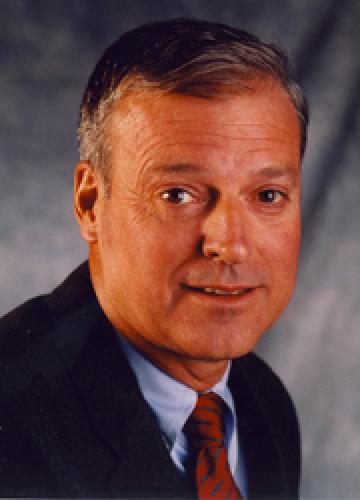
John Reed spent his working life with Citibank and its various parents, serving as Chairman from 1984-2000. He was Chairman of the New York Stock Exchange from 2003-2005. He is the Chairman Emeritus of the MIT Corporation. Long interested in academics and the social sciences, Mr. Reed has served on the Board of MIT (1980 till present), The Russell Sage Foundation (1975 -1987; 1990-1998), Center for Advanced Study in the Behavioral Sciences (1983-2007), The Spencer Foundation (1988-2005), and MDRC (2003-2018). Mr. Reed is a Fellow of the American Academy of Arts and Sciences and the American Philosophical Society. Mr. Reed is a Trustee of the Boston Athenæum.
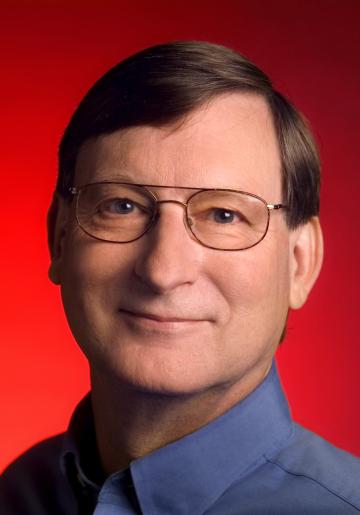
Hal Varian is the former Chief Economist at Google and an Emeritus Professor in the School of Information, the Haas School of Business, and the Department of Economics at the University of California, Berkeley. His research has made important contributions in industrial organization, consumer search, the theory of public goods, and demand theory. He is the author of two very successful microeconomic theory textbooks, one graduate, and one undergraduate, as well as Information Rules: A Strategic Guide to the Network Economy (with Carl Shapiro), an early guide to the information economy. Varian received his undergraduate degree from MIT and his PhD from the University of California, Berkeley.
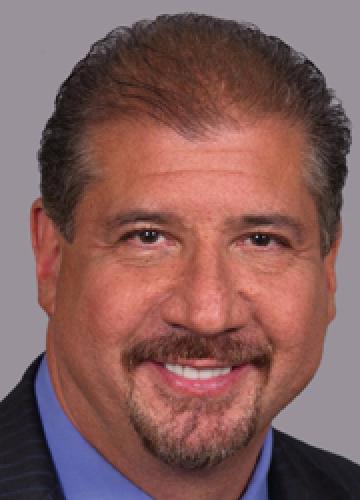
Mark Weinberger is the former Chairman and Chief Executive Officer of EY, a global professional services firm with 300,000 people in over 150 countries. Under his leadership, the company added net 100,000 people. He served as Assistant Secretary of the US Department of the Treasury in the George W. Bush administration; was appointed by President William J. Clinton to serve on the US Social Security Administration Advisory Board; served on President Obama’s Infrastructure task force and President Trump’s Strategic and Policy Forum. He serves on the Board of Directors of Johnson & Johnson, Metlife and Saudi Aramco. He is a Trustee of Emory University and Case Western University. Weinberger received his BA from Emory University, an MBA and JD from Case Western Reserve University, and an LLM in Taxation from Georgetown University.
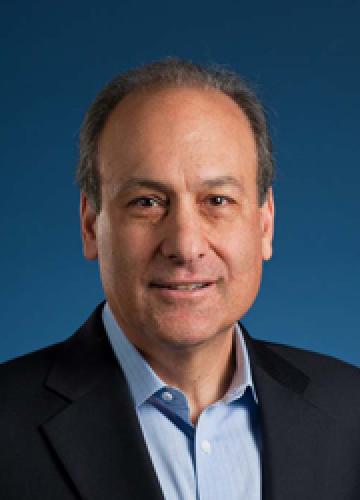
Martin Zimmerman, board chair from 2014 to 2017, previously was Group Vice President, Corporate Affairs at Ford Motor Company. He was previously Vice President, Governmental Affairs; prior to this, he was Executive Director, Governmental Relations and Corporate Economics. He is a former faculty member of the Sloan School of Management at MIT. He is a graduate of Dartmouth College (AB) and MIT (PhD.). He is a member of Phi Beta Kappa, NABE, and serves on Board of Trustees of the CED, the National Commission on Energy Policy and the Community Foundation of Southeast Michigan.
Directors by University Appointment
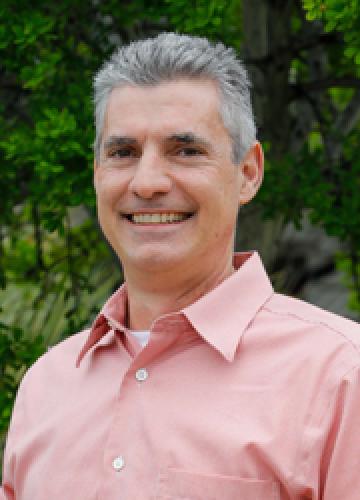
Jason Abrevaya is the Murray S. Johnson Professor of Economics and past department chair at the University of Texas, Austin. He currently serves as Associate Dean for Graduate Education. His research combines econometric methodology and applied microeconomics; he has studied treatment‑effect estimation, birth outcomes, smoking, and vaccine mandates. He co-founded the Journal of Econometric Methods and is a director of the Western Economic Association International. Abrevaya received his AB in Applied Mathematics and Economics from Harvard University and his PhD in Economics from MIT.

Stéphane Bonhomme is the Ann L. and Lawrence B. Buttenwieser Professor of Economics at the University of Chicago. His research focuses on microeconometrics and econometric theory. He has developed methods for estimating latent‑variable and factor models and advanced methods for analyzing nonlinear panel data. He has applied these tools to study labor economics issues using administrative and matched employer-employee data. Bonhomme was an undergraduate at the École Normale Supérieure de Lyon and he received his PhD in Economics from Université Paris I Panthéon-Sorbonne. He is a Fellow of the Econometric Society.

Timothy Bresnahan is the Landau Professor in Technology and the Economy, Emeritus at Stanford University, and Director of the Center on Employment and Economic Growth in the Stanford Institute for Economic Policy Research. He has served as Chief Economist of the Antitrust Division in the US Department of Justice and the Chair of the Economics Department at Stanford. Professor Bresnahan’s research focus is in industrial organization and the economics of technologies, with a particular interest in competition and innovation in high-technology industries and technical change by users of information technologies.
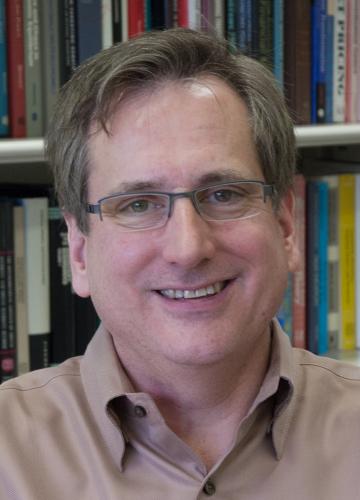
Gary Hansen is a Professor of Economics and past department chair at the University of California, Los Angeles. His research focuses on macroeconomic fluctuations and equilibrium models of business cycles, with an emphasis on how labor market frictions can amplify the impact of economic shocks on hours of work. He has also studied fiscal policy in Japan, consumption taxation, and the macroeconomics of publicly provided health insurance and long-term care. Hansen received his undergraduate degree in economics and mathematics from the University of Puget Sound, and his PhD in Economics from the University of Minnesota.
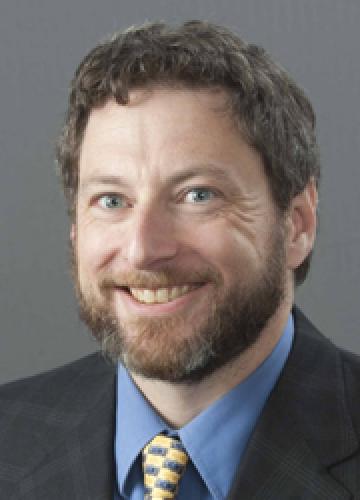
Benjamin Hermalin holds professorships in the University of California, Berkeley’s Economics Department and its Haas School of Business, where he is the Thomas & Alison Schneider Distinguished Professor of Finance. He currently serves as Berkeley’s Executive Vice Chancellor and Provost. Previous service includes being Economics Department Chair, interim dean of the Haas School, Chair of Berkeley’s Academic Senate, and Vice Provost for the Faculty. He has served as an editor or on the editorial boards of a number of leading journals in economics. His research interests include corporate governance, the study of organizations, and industrial organization. He is the author of over 60 journal articles and book chapters. He received his AB from Princeton and his PhD from MIT.

Bo Honoré is the Class of 1913 Professor of Political Economy and Professor of Economics at Princeton University. He is also a past department chair and the current director of Graduate Studies and Admissions. He has made key contributions to the design and analysis of semiparametric and nonparametric econometric methods, selection and truncation models, dynamic discrete choice, and panel‑data approaches to unobserved heterogeneity. Honoré was an undergraduate at the University of Aarhus and received his PhD in Economics from the University of Chicago. He has served as Vice-Chair of the Danish National Research Foundation and is a fellow of the Econometric Society and a member of the American Academy of Arts and Sciences.
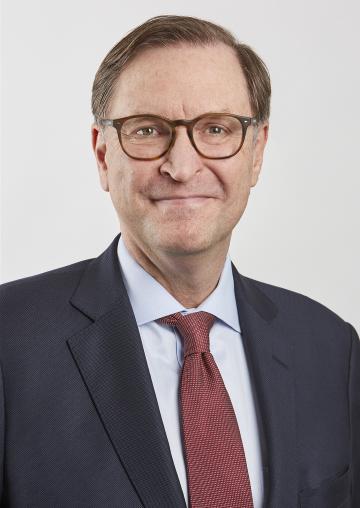
R. Glenn Hubbard is the Russell L. Carson Professor of Finance and Economics at Columbia University and the Director of the Jerome A. Chazen Institute for Global Business at the Columbia Business School, where he previously served as Dean. Between 2001 and 2003, he served as the chairman of the President’s Council of Economic Advisers, and between 1991 and 1993, as the Deputy Assistant Secretary for Tax Policy at the US Treasury Department. His wide-ranging research has touched on corporate finance, energy economics, public finance, and macroeconomics. Hubbard received his undergraduate degree in economics from the University of Central Florida and his PhD from Harvard.

Samuel Kortum is the James Burrows Moffatt Professor of Economics at Yale University. His principal areas of research are international economics, industrial organization, and macroeconomics. In 2004, he and Jonathan Eaton shared the Econometric Society’s Frisch Medal for their work on geography, technology, and trade. They were also honored with the 2018 Onassis Prize in International Trade. Kortum is a member of the American Academy of Arts and Sciences, a Fellow of the Econometric Society, and a past editor of the Journal of Political Economy. He was an NBER affiliate from 1993 until joining the Board in 2018. He received his BA from Wesleyan University and his PhD from Yale.
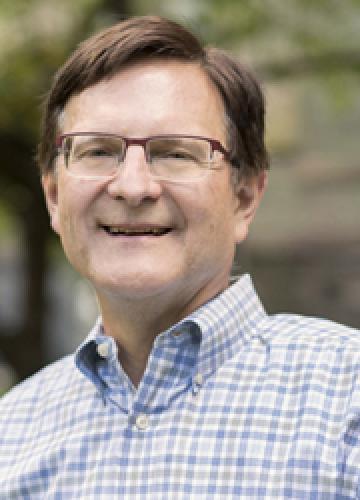
George J. Mailath is the Walter H. Annenberg Professor in the Social Sciences and Professor of Economics at the University of Pennsylvania, and Goldsmith Professor in the Research School of Economics at the Australian National University. His research focuses on microeconomic theory, particularly on pricing, repeated games, non-cooperative and evolutionary game theory, social norms, and the theory of reputations. He is a Fellow of the American Academy of Arts & Sciences, the Econometric Society, the Game Theory Society, and the Society for the Advancement of Economic Theory, and has served on the Councils of the Econometric Society and the Game Theory Society.
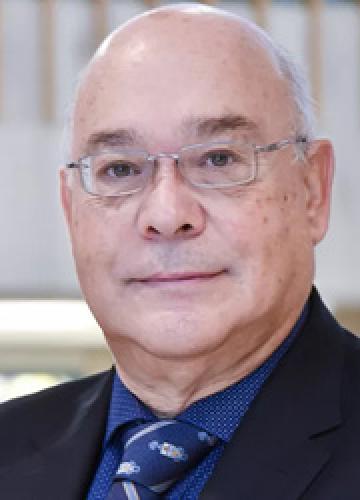
Angelo Melino is a Professor of Economics and past associate department chair at the University of Toronto and a Research Fellow at the C.D. Howe Institute. His research focuses on financial markets, macroeconomics, and time series econometrics, and addresses questions like the effect of monetary policy on the term structure of interest rates. He previously represented the Canadian Economic Association on the Board. He received his undergraduate degree from the University of Toronto and his PhD from Harvard University.
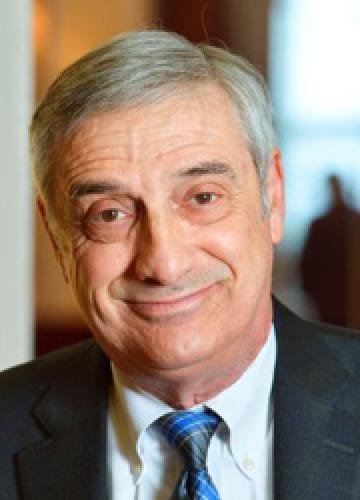
Joel Mokyr is the Robert H. Strotz Professor of Arts and Sciences, and Professor of Economics and History at Northwestern University. He is an economic historian with interests in the economic history of technological change and population. His most recent books include The Lever of Riches (1990) and The British Industrial Revolution: an Economic Perspective (2nd edition, 1998), The Gifts of Athena (2002), The Enlightened Economy (2009), and A Culture of Growth. He is also Editor-in-Chief of the Oxford Encyclopedia of Economic History, published in 2003. He was elected a distinguished member of the American Economic Association in 2018.

John Pepper is the Merrill S. Bankard Professor of Economics and past chair of the economics department at the University of Virginia. His research focuses on applied econometrics and public finance, with particular emphasis on social safety net programs that are designed to provide food security and on the measurement and economic analysis of crime and public policies that affect it. He received his undergraduate degree in quantitative economics from Tufts University, and his PhD from the University of Wisconsin, Madison.

Richard Schmalensee is the Howard W. Johnson Professor of Management, Emeritus and Professor of Economics, Emeritus at the Massachusetts Institute of Technology. He served as the John C Head III Dean of the MIT Sloan School of Management from 1998 through 2007, was a Member of the President’s Council of Economic Advisers from 1989 through 1991, and served as Chairman of the Board of Resources for the Future from 2014 through 2018. Schmalensee is a Fellow of the Econometric Society and the American Academy of Arts and Sciences and a Distinguished Fellow of the Industrial Organization Society. He holds an SB and a PhD in economics from MIT.

Richard H. Steckel is a Distinguished University Professor and Professor of Economics, Emeritus, at The Ohio State University. He is an economic historian with strong interests in demography, focusing his research on measurement of long-term trends in the standard of living using diverse sources and methodologies, including heights and skeletal remains. He is a pioneer in the field of anthropometric history, and is the past president of both the Economic History Association and the Social Science History Association. He was an NBER Research Associate for four decades before joining the board of directors. Steckel earned his AB from Oberlin College, masters degrees in both economics and mathematics from the University of Oklahoma, and an MA and PhD degree in economics from the University of Chicago.
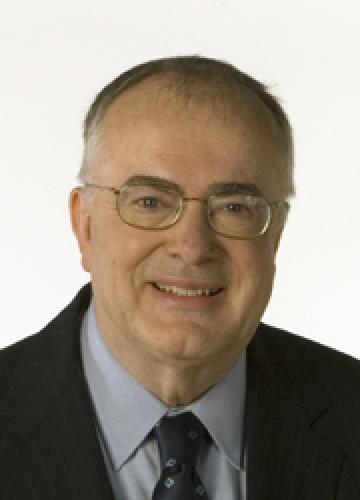
Ingo Walter is the Seymour Milstein Professor of Finance, Corporate Governance and Ethics (emeritus) at New York University's Stern School of Business. His principal areas of teaching and research include international banking and capital markets, corporate governance and risk management. He has authored or co-authored papers in most of the professional journals in these fields and is the author, co-author or editor of 27 books and monographs, most recently Bridging the Gaps (2019). He received his BS and MS degrees from Lehigh University and his PhD from New York University.
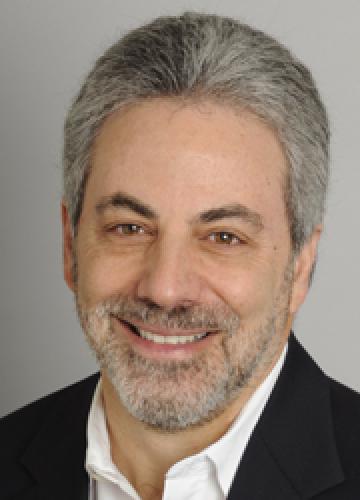
David B. Yoffie is the Max and Doris Starr Professor of International Business Administration at the Harvard Business School. Over 40 years, he has served in numerous roles at Harvard, including department chair and senior associate dean. Professor Yoffie's research has focused on technology, competitive strategy, and international competition. He has served on the boards of numerous technology companies. Professor Yoffie is the author or co-author of ten books, including most recently, The Business of Platforms: Strategy in the Age of Digital Competition, Innovation and Power (Harper Business, 2019). Professor Yoffie has also published more than 200 case studies. He holds a PhD from Stanford University.
Directors by Appointment of Other Organizations

Siwan Anderson is a professor at the Vancouver School of Economics at the University of British Columbia. Her research falls primarily in development economics, with an emphasis on micro‑level institutions and gender, property rights and marriage payments, caste and trade, and local governance. Much of her research focuses on South Asia. A co‑editor of the Journal of Development Economics, she earned her BSc in Mathematics, MA, and PhD in Economics from the University of British Columbia.
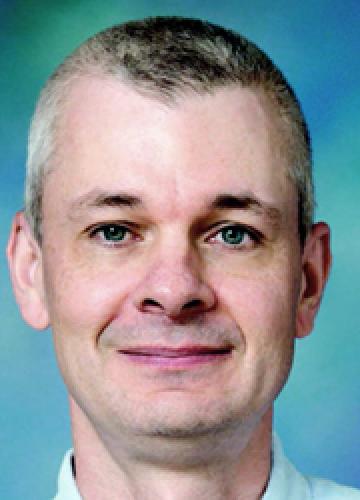
Timothy Beatty is a professor of Agricultural and Resource Economics at the University of California, Davis. His research focuses on the empirical analysis of consumption behavior, particularly the demand for nutrition and health, and in the links between consumption and health outcomes. He has served as co-editor of the American Journal of Agricultural Economics, and is currently a member of the Executive Board of the Agricultural and Applied Economics Association. Beatty received his BA from Universite Laval, an MSc from the University of Montreal, and his PhD from the University of California at Berkeley.

Darrick Hamilton is the Chief Economist of the American Federation of Labor and Congress of Industrial Organizations (AFL-CIO). He is also a university professor and the Henry Cohen Professor of Economics and Urban Policy and the founding director of the Institute on Race, Power and Political Economy at The New School. His research focuses on the economics of stratification and on labor market and wealth inequality, with particular attention on racial disparities and policies that could reduce them. He has served as President of the National Economic Association, and as codirector of the American Economic Association Summer Training Program. Hamilton received his undergraduate degree from Oberlin College, and his PhD from the University of North Carolina-Chapel Hill, both in economics.
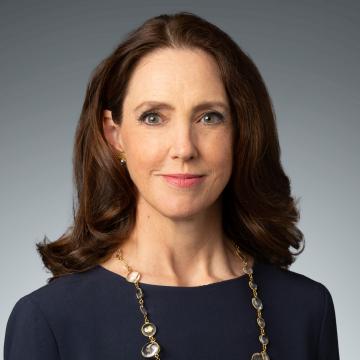
Constance Hunter is the Chief Economist of the Economist Intelligence Unit (EIU). Prior to joining the EIU, she was an Executive Vice President and Global Head of Strategy and ESG, at AIG, and earlier, the Chief Economist at KPMG. She is an expert in both macroeconomic and industry analysis, with a track record of using data-driven sector analysis to anticipate pivotal economic events. She has served as President of the National Association for Business Economics (NABE), is currently a NABE Fellow. She graduated from New York University with a BA in economics and sociology, and received a master's degree from the Columbia University School of International and Public Affairs. She holds the Certified Business Economics designation from NABE.

Arthur Kennickell is an independent economic measurement consultant. He is a former official at the Federal Reserve Board, where he had worked since 1984. He has a PhD in economics from the University of Pennsylvania, and a BA from the University of Chicago. He was the 2007 winner of the Julius Shiskin Memorial Award for innovation in economic statistics. He has long been associated with the development of the Survey of Consumer Finances and the Global Legal Entity Identifier System.
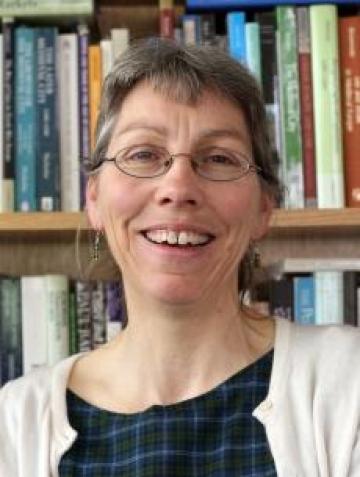
Anne McCants, who represents the Economic History Association on the NBER board, is the Ann F. Friedlaender Professor of History and a Margaret MacVicar Faculty Fellow at MIT. She is a past president of the International Economic History Association, vice president of the Social Science History Association, and a past vice president of the Economic History Association. She is editor of the Journal of Interdisciplinary History. McCants’ research focuses on historical demography, early modern trade and consumption, the provision of charity, and the links between economic growth and living standards. She received a doctorate in history from the University of California, Berkeley, a master’s in economics from the University of California, Los Angeles, and an undergraduate degree in economics and European studies from Mt. Holyoke College.
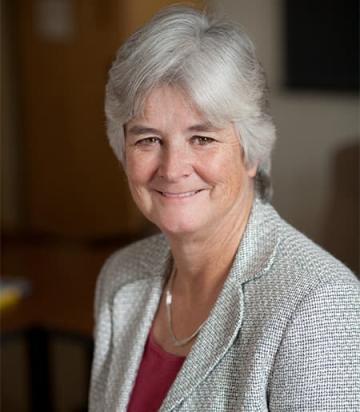
Maureen O'Hara is the Robert W. Purcell Professor of Finance at the Johnson Graduate School of Management at Cornell University. Her research focuses on issues in market microstructure, and her recent work has examined issues such as how ETFs affect market stability, liquidity issues in corporate bond markets, and transaction costs in bitcoin. She is the past president of the American Finance Association, the Western Finance Association, the Financial Management Association, and the Society for Financial Studies, and she serves on the Board of Trustees of Teachers Insurance and Annuity Association (TIAA). For more than a decade, she chaired the board of the Investment Technology Group, Inc. (ITG), a global agency brokerage firm. She received her BS in economics from the University of Illinois, and an MS in Economics and PhD in finance from Northwestern University.
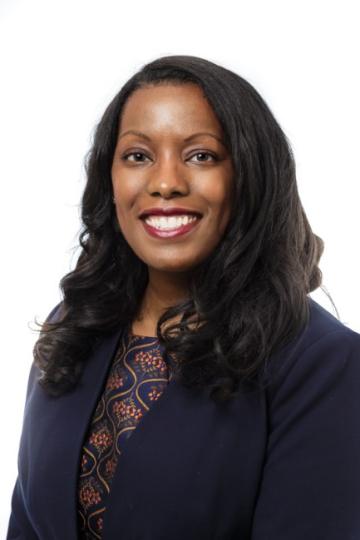
Dana M. Peterson is the Chief Economist of the Conference Board. She was previously the North American and Global economist at Citigroup, where she analyzed global economic themes with financial market implications, as well as a researcher in the Fiscal Analysis Section of the Federal Reserve Board. She is also the rising 1st Vice Chair of the New York Association for Business Economics. Peterson received her undergraduate degree in economics (with honors) from Wesleyan University and a masters in economics from the University of Wisconsin-Madison.
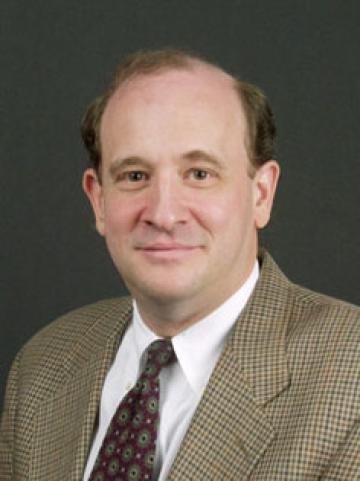
Peter L. Rousseau is the Hubbard Family Chair in Economics, Professor of History, and former chair of the Department of Economics at Vanderbilt University. He is also the Secretary-Treasurer of the American Economic Association, and a former Research Associate at the NBER. Professor Rousseau studies macroeconomics and economic history, with a research focus on the role of financial markets and institutions in economic growth and development. He is particularly interested in monetary history, and in how financial markets assist in spreading transformative technological change through an economy. He holds a PhD from New York University.
Directors Emeriti
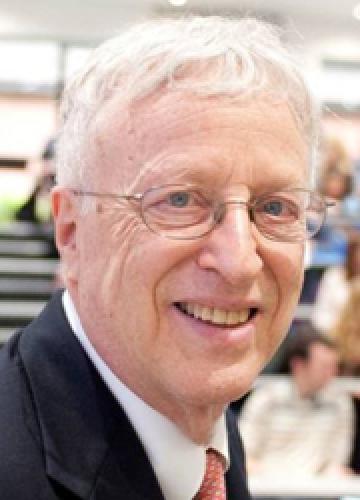
George A. Akerlof is a University Professor at Georgetown University. Prior to his appointment at Georgetown, he spent more than four decades on the faculty of the University of California, Berkeley, where he was most recently the Koshland Professor of Economics. He is also a senior fellow at the Brookings Institution. He has made contributions to microeconomic and macroeconomic theory and also to behavioral economics. He is a 1962 graduate of Yale University and received his Ph.D. from MIT in 1966. He received the Sveriges Riksbank Prize in Economic Sciences in Memory of Alfred Nobel 2001.
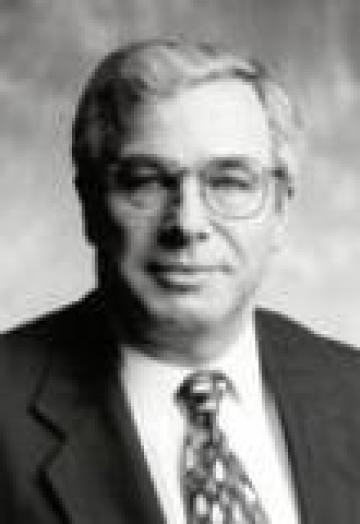
Peter C. Aldrich is a founder and retired CEO and Chairman of AEW Capital Management, one the oldest and largest real estate investments advisors in the United States. Mr. Aldrich was Chairman of AEGIS, LLC, an investment holding company, and the Faculty Chairman of The Research Council on Global Investment of The Conference Board. He was the founder of the Pension Real Estate Association as well as a past faculty member of the Harvard Graduate School of Business Administration and Yale Graduate School of Organization and Management. He is a director of a Blackrock real estate fund and Trustee of numerous Fidelity funds. Mr. Aldrich is a graduate of Harvard University (B.A. and M.B.A.).
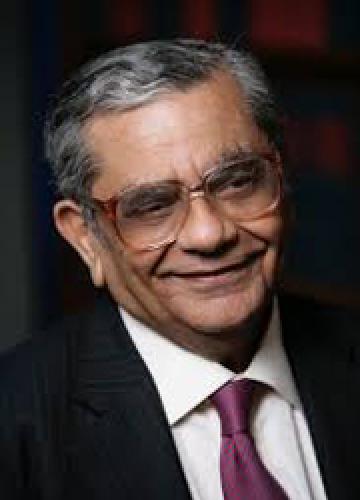
Jagdish Bhagwati is University Professor at Columbia University and former Senior Fellow at the Council on Foreign Relations. He has served as Economic Policy Adviser to the Director-General, GATT, Special Adviser to the UN on Globalization, and External Adviser to the WTO. His current research interests include trade, immigration, climate change, the future of capitalism, and globalization issues.
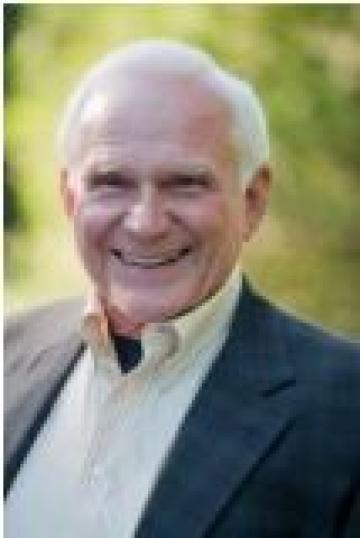
Don R. Conlan is the former President and Director of The Capital Group Companies, a global investment management organization that includes The American Funds family of mutual funds. He was previously the Chief Economist of Chemical Bank (now J.P. Morgan Chase Bank), Dean Witter (now Morgan Stanley), and the Nixon administration's Cost of Living Council, as The Capital Group Companies. He is a past president of the Conference of Business Economists and the National Association for Business Economics. He is a former Chair of the Board of Governors of The Huntington Library, Art Museum & Botanical Gardens; he has also served on the boards of many other nonprofit organizations. Mr. Conlan holds B.B.A. and M.B.A. degrees from the University of Michigan. He travels widely, studying socio-political and cultural issues in "battered" societies around the globe.
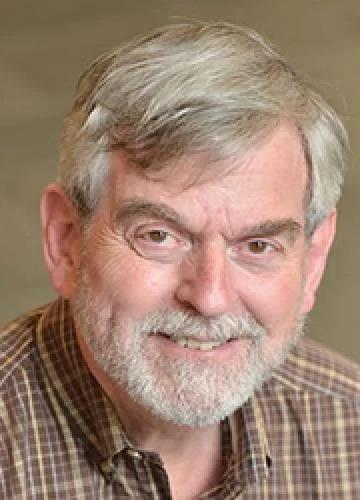
Alan V. Deardorff is Professor Emeritus of Public Policy and Economics at the Gerald R. Ford School of Public Policy and Department of Economics of the University of Michigan. He received his Ph.D. in economics from Cornell University in 1971 and was on the faculty at the University of Michigan from 1970, retiring in 2021. He served as Chair of the Department of Economics from 1991 to 1995 and as Associate Dean of the Gerald R. Ford School of Public Policy from 2007 to 2015. His specialty in teaching and research is the economics of international trade and trade policy, to which he contributed both to the pure theory of international trade and to the computer modelling of trade policy.
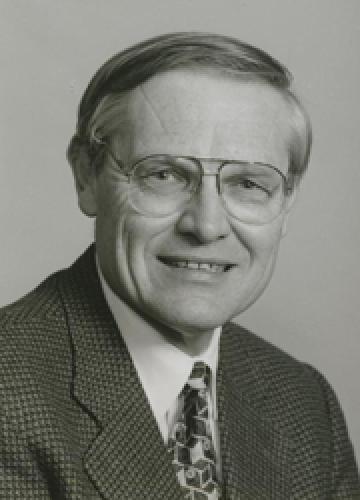
George C. Eads is a retired Senior Consultant, Charles River Associates International, a business and economics consulting firm headquartered in Boston. Prior to this he was Vice President and Chief Economist at General Motors. He has also served as Dean of the School of Public Affairs at the University of Maryland and as a member of the President’s Council of Economic Advisers.
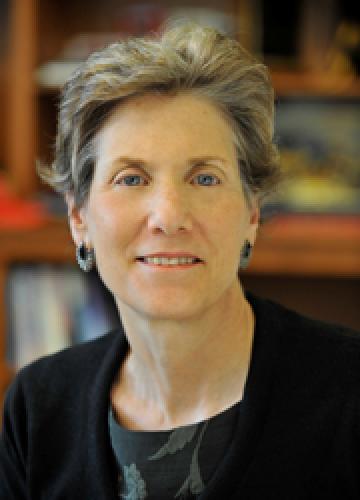
Jessica P. Einhorn served as Dean of SAIS (the Paul H. Nitze School of Advanced International Studies) at Johns Hopkins University from 2002 until 2012. She spent most of her career at the World Bank, where she was Vice President and Treasurer (1992-96) and Managing Director (1996-98). She is on the Advisory board of the RockCreek group in Washington D.C. She is a former trustee of the German Marshall Fund and the Rockefeller Brothers Fund, and former Director of the Peterson Institute of International Economics, the Center for Global Development, and the Council on Foreign Relations. She served as a director of both Time Warner and Blackrock.
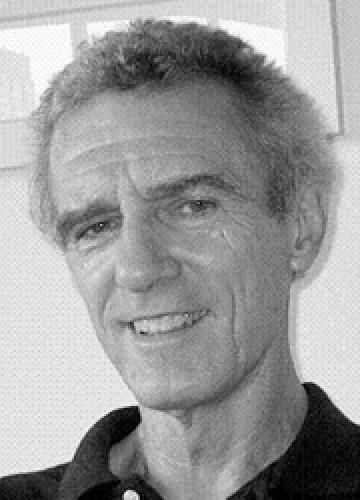
Ray C. Fair is a professor of economics at Yale University. Fair’s main research is in macroeconometrics, but he has also done work in the areas of finance, voting behavior, and aging in sports. He has made quarterly updates of his U.S. macroeconometric model and made forecasts since 1983. He has made four-year updates of his presidential vote share equation and made forecasts since 1980. He has estimated how fast people should slow down as they age if they remain in peak shape. He is a 1964 graduate of Fresno State College and received his Ph.D. from MIT in 1968.
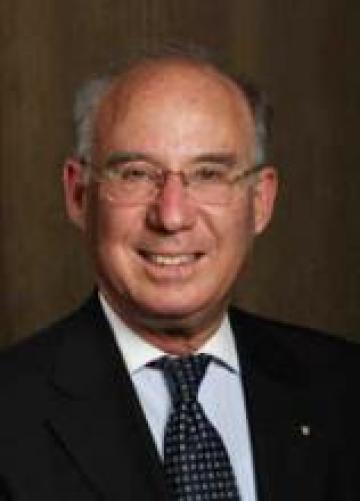
Jacob A. Frenkel is Chairman of the Board of Trustees of the Group of Thirty (G30) and Chairman of the Board of Governors of Tel Aviv University. Previously he was Chairman of JP Morgan Chase International (2009-2020), Chairman and CEO of the Group of Thirty (2000-2011), Vice Chairman of AIG (2004-2009), Chairman of Merrill Lynch International (2000-2004), Governor of the Bank of Israel (1991-2000), Weisfeld Professor of Economics, Tel Aviv University (1994-2001), Economic Counselor and Director of Research, IMF (1987-1991), David Rockefeller Professor of International Economics, University of Chicago (1973-1987). Dr. Frenkel is a Laureate of the 2002 Israel Prize in Economics, a Fellow of the Econometric Society, and a member of the American Academy of Arts and Sciences.
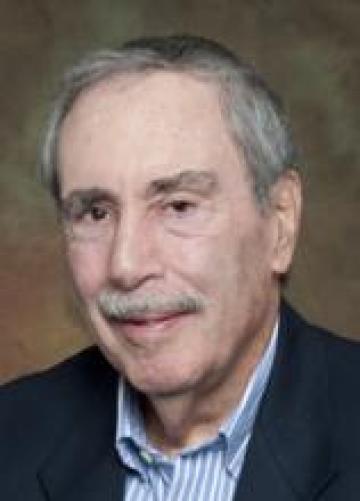
Martin Gruber is a Scholar in Residence and Professor Emeritus at the Stern School of Business of New York University. A graduate of MIT, he received his Ph.D. from Columbia in 1966, and taught at NYU from 1965 through 2010. He has been a co-editor of the Journal of Finance, and a department editor of Management Science. He has served as President of the American Finance Association, and is a Fellow of both the American Finance Association and the Financial Management Association. He has been a Director of several mutual fund complexes, including DWS, CREF, SGCowen, Daiwa and Aberdeen Funds.
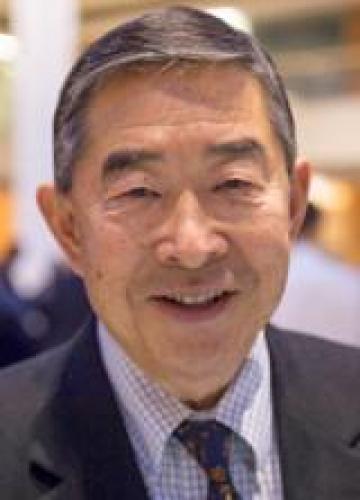
Robert Hamada is the Edward Eagle Brown Distinguished Service Professor of Finance Emeritus and former Dean (1993-2001) at the University of Chicago Booth School of Business. He had been on its faculty since 1966 with interests in finance and more recently, in corporate strategy. He serves, or has served, on twelve business and nine nonprofit Boards. He received his bachelor's degree from Yale and master's and PhD in financial economics from the MIT Sloan School.

Saul Hymans is Emeritus Professor of Economics and Statistics at the University of Michigan, and the past Director of the university's Research Seminar in Quantitative Economics. An expert on macroeconomics and economic forecasting, he is a two-time recipient of the Blue Chip Annual Economic Forecasting Award (984 and 1987), and served as a senior staff economist on the President's Council of Economic Advisers. Hymans graduated from Harvard College and holds a Ph.D. in economics and an M.A. in statistics from the University of California, Berkeley.

Robert Mednick who served as NBER Treasurer, retired as Worldwide Managing Partner for Professional and Regulatory Matters of Arthur Andersen/Andersen Consulting (now Accenture) in 1998. He is also a past chairman of the American Institute of CPAs. In addition, Mednick is senior vice chair of the board of Roosevelt University and serves on three advisory groups within the US Government Accountability Office, including the Accountability Advisory Council to the comptroller general of the United States. He has previously served as a senior adviser to the World Bank and on the boards of the American Judicature Society, a 100-year-old think tank dedicated to court reform; the Rand Corporation Institute for Civil Justice, and the Ray Garrett Jr. Corporate and Securities Law Institute at Northwestern University’s Pritzker School of Law.
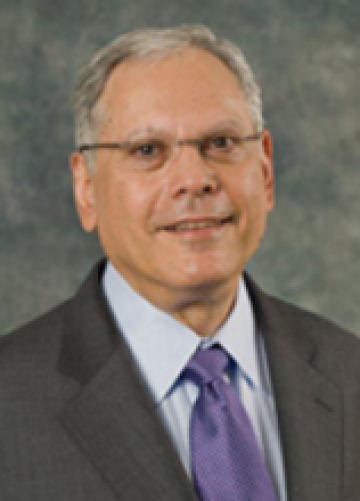
Laurence H. Meyer is Chairman of Monetary Policy Analytics, an independent research and advisory firm based in Washington, D.C. that focuses on the link between the U.S. macroeconomic outlook, monetary policy, and interest rates. Dr. Meyer served as a Governor on the Federal Reserve Board from June 1996 through January 2002. Previously, he was a professor of economics and a former chairman of the economics department at Washington University, where he taught for 27 years. Dr. Meyer earned a BA from Yale in 1965 and Ph.D from MIT in 1970. He is a fellow of NABE, a member of the Council of Foreign Relations, and a member of the Board of the National Bureau of Economic Research. He is the author of A Term at the Fed: An Insider’s View, published by HarperBusiness in July 2004.
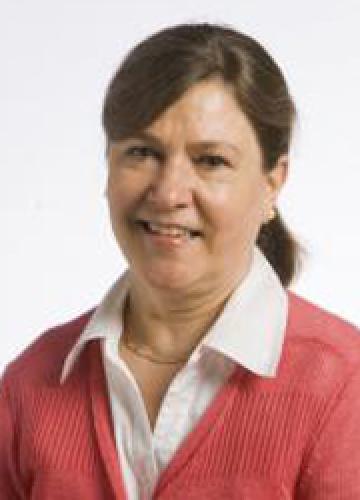
Marjorie McElroy is a Professor of Economics at Duke University. Publications include articles in econometrics, consumer and producer demand systems, and arbitrage pricing theory. Her current research is in labor economics and, in particular, family decision making, intra-household allocations, and marriage markets.
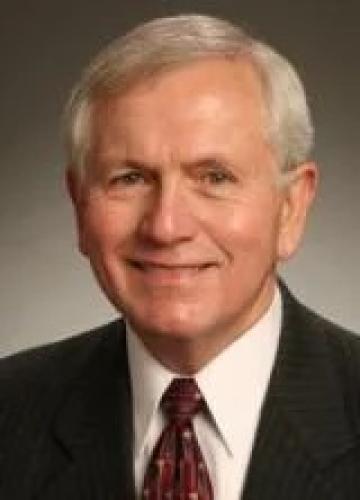
Robert T. Parry is the former President and CEO of the Federal Reserve Bank of San Francisco. Prior to joining the Federal Reserve System, he served as Executive Vice President and Chief Economist of Security Pacific National Bank. He received his B.A. from Gettysburg College in 1960 and his M.A. and Ph.D. in economics from the University of Pennsylvania in 1961 and 1967. Mr. Parry was Chairman of the Economic Advisory Committee of the American Bankers Association, and is a past President of the National Association for Business Economics.
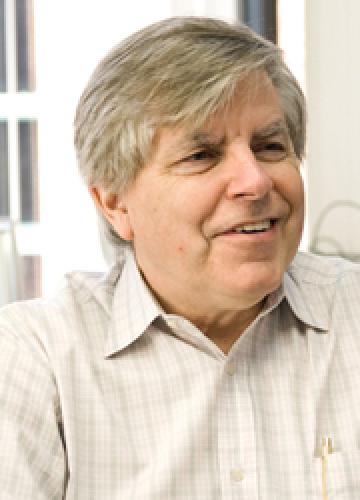
Andrew Postlewaite is the Harry P. Kamen Professor of Economics and Professor of Finance, University of Pennsylvania. His work integrates social phenomena, such as concern for one's relative income or wealth ranking in society into traditional economic models. The aim of this research is to provide theoretical foundations for empirical work on savings behavior and employment that takes such sociological considerations into account.
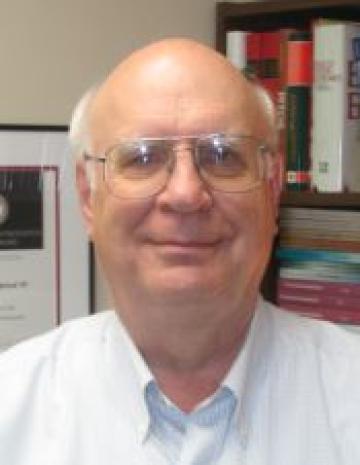
John J. Siegfried is Professor of Economics Emeritus at Vanderbilt University and Secretary-Treasurer Emeritus of the American Economic Association. He was President of the Southern Economic Association in 1996 and the Midwest Economics Association in 2000. His research interests include antitrust economics, the economics of sports, the economics of higher education, and economics education.
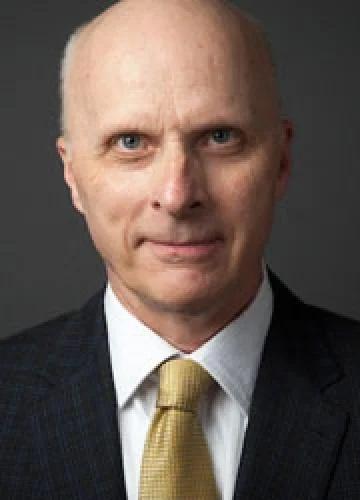
Gregor W. Smith is the Douglas D. Purvis Professor of Economics at Queen's University, Canada. He is a past president of the Canadian Economics Association and a former co-editor of the Journal of International Economics and the Canadian Journal of Economics. His research interests are in international macroeconomics and economic history. He graduated from Queen's University, the University of St. Andrews, and Oxford University (D.Phil. 1986).
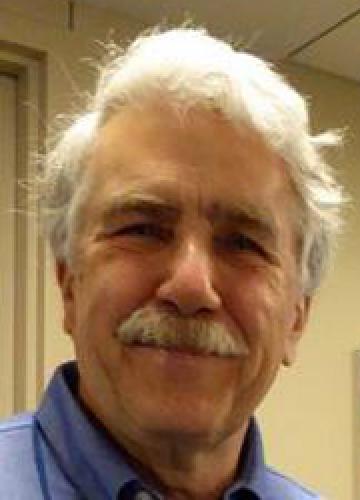
Craig Swan is Professor of Economics Emeritus, University of Minnesota. Over his career he served as chair of the Department of Economics, Associate Dean of the College of Liberal Arts, Vice Provost for Undergraduate Education and President of the Minnesota Economics Association. He has served on the Board of Directors of the Minnesota Opera, the Colleagues Advisory Board of the Weisman Museum, University of Minnesota and the Board of the Friends of the University Library. His published research has focused on issues related to housing markets and residential construction.